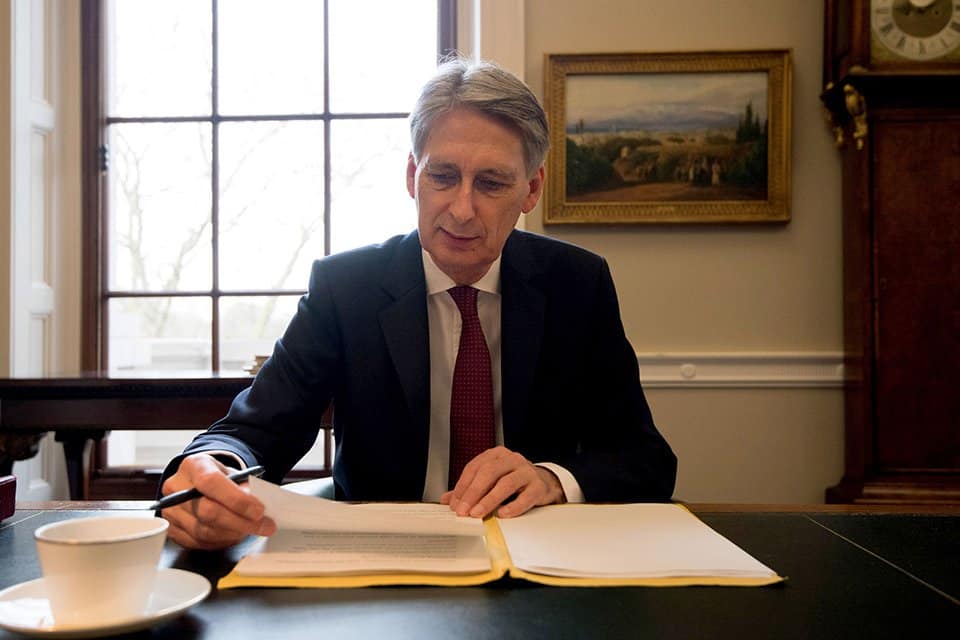
The UK pharma and biotech sectors are hoping for measures to support investment in R&D and manufacturing when Chancellor Philip Hammond delivers the last pre-Brexit budget later today.
Hammond has however already acknowledged that, regardless of what is put on the table today, the government will have to take the budget back to the drawing board if the UK is unable to reach a Brexit deal with the EU.
He told Sky News that if that happens “we’d need to have a new Budget that set out a different strategy for the future.” While he didn’t give any detail about what that emergency plan would involve, Shadow Chancellor John McDonnell has suggested that Hammond is considering significant tax cuts that would take the UK down the path to a tax haven model such as that adopted by Singapore.
The threat of Brexit will likely make this budget a cautious affair, and some of the broad strokes have already been drawn. An extra £20bn-a-year has been set aside for the NHS in England by 2023, funded by higher taxes and money that would have gone to the EU, and that includes a £2bn increase in mental health spending designed to achieve “parity of care” between physical and mental health.
A big question is there that extra money will come from, with some suggesting this could come from an increase in national insurance contributions, a higher VAT rate or even a backtracking on the government’s pledge to lower corporation tax, which remains very low among industrialised countries.
The Chancellor is also expected to provide an update on the implementation of the Patient Capital Review, which was published in the 2017 Budget. This is likely to include an assessment of tax changes to encourage investment, a report on the activities of the British Business Bank and progress on work with the pension funds industry to unlock capital for science-led companies.
Other measures are expected to include more money for adult social care, a freeze on fuel duty, and a £30bn pot for England’s motorway network paid for by road tax.
In submissions on behalf of the biopharma industry, the BioIndustry Association (BIA) has called for a range of measures that would help smaller biotech companies that are trying to scale up their operations.
It would like to see grants made available for manufacturing investments, changes to the R&D tax credits system to better reflect current practices, such as the purchase of data, and new rules that would allow pre-revenue companies to swap allowances on losses made for capital expenditures for upfront cash credits.

The BIA’s Steve Bates
“Many UK bioscience companies are now looking to scale up to achieve their global ambitions,” said BIA chief executive Steve Bates. “We are calling on the Chancellor to use this Budget to support scaling biotechs with a suite of policies that will anchor R&D and commercial operations in the UK.”




